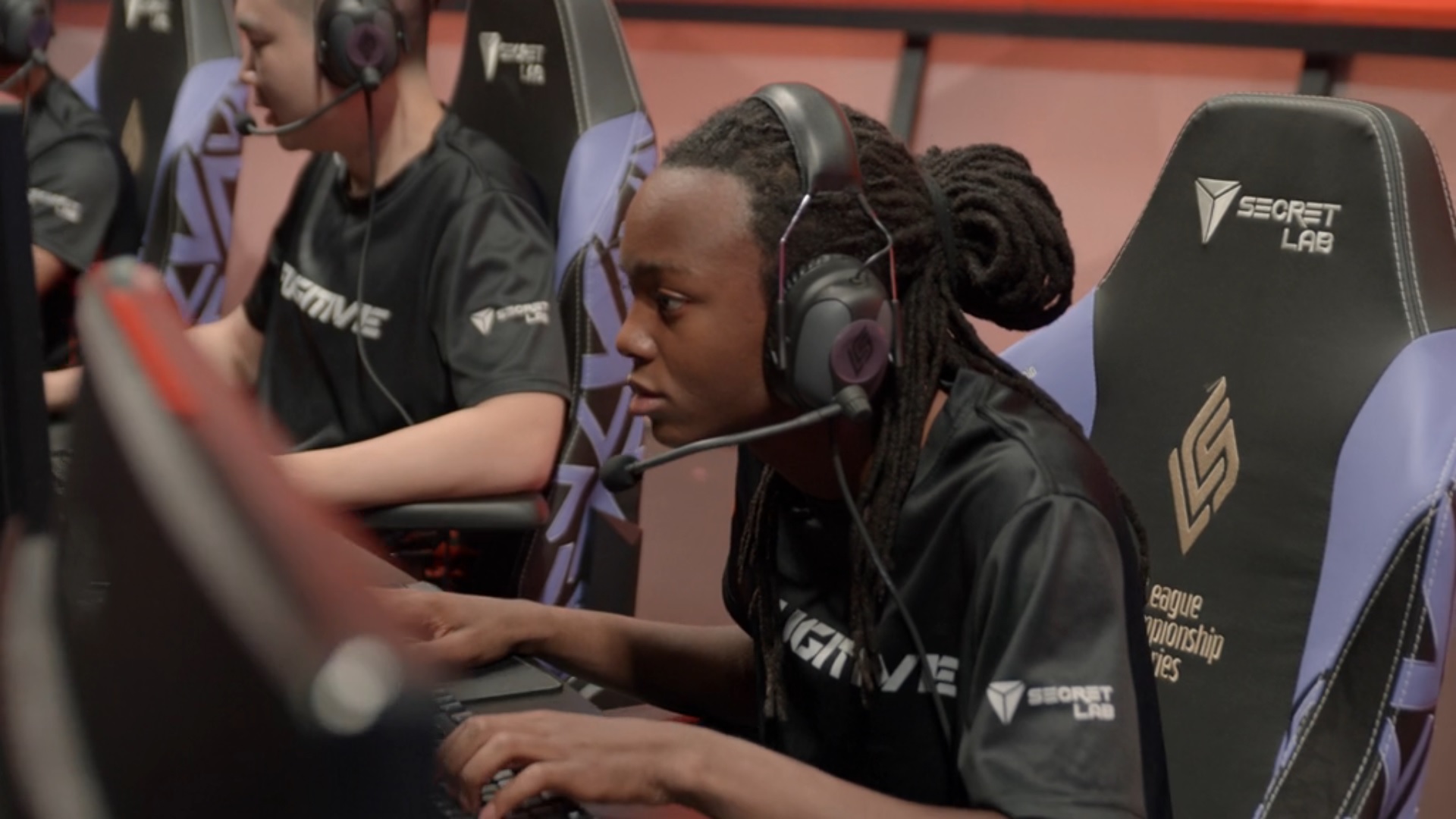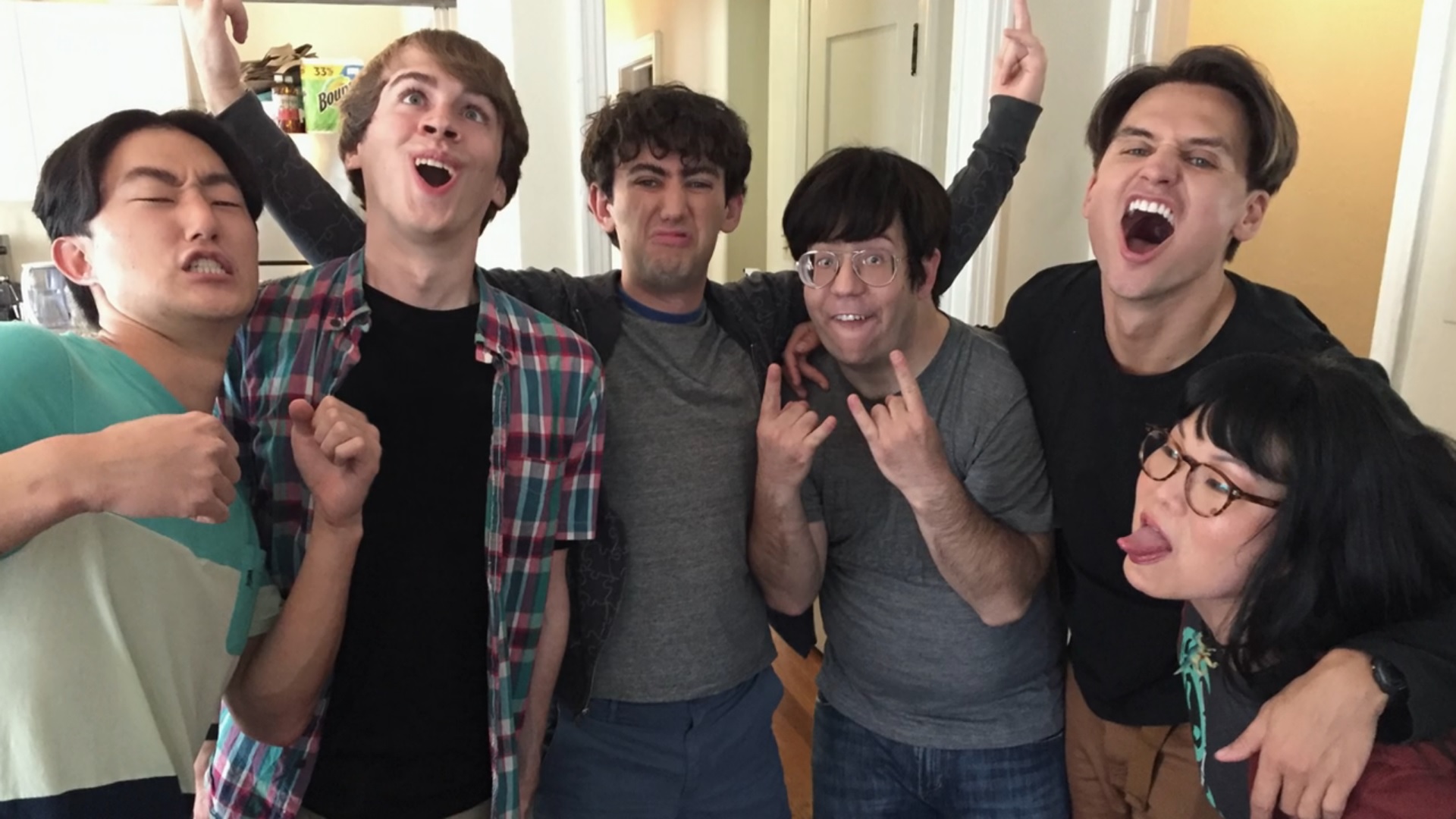I can't believe an esports mockumentary made me feel things
Players, which wrapped its first season last week, is really worth a watch.

If you haven't heard of the show Players, a mockumentary from the creators of American Vandal, it's not your fault: It's a Paramount+ exclusive. I only subscribed to begrudgingly watch Halo, but I've kept it the past 10 weeks because Players started to get really good.
Players is something that truly hasn't existed before: a show about a fictional esports team that uses a real league and game. It sometimes looks like one expensive ad for League of Legends—the show's partnership with Riot allows it to use real LoL footage and Riot facilities—but it doesn't shy away from the worst and cringiest parts of esports culture and the business. There's the aging (28 year old) support whose ego only barely outsizes his fear of failure, the millionaire owner who also owns a basketball team, and the obnoxious ex-pro who quits to become a full-time streamer.
This is arguably the most mainstream piece of media ever to center around esports, and its creators are clearly aware of that. The first episode spends as much time explaining what esports is as it does establishing its main characters. It makes for a much slower start than the instantly recognizable world of American Vandal.
After episode one, Players takes off the training wheels. Characters constantly drop real MOBA jargon that isn't explained until a character mentions it during an interview scene. As a non-MOBA player, I was scratching my head for a full 20 minutes wondering what the hell an ADC is before someone, probably one of the actual LCS commentators who frequently appear in the show, said it stands for Attack Damage Carry, the person whose job is dealing the most damage. That helped my understanding of Fugitive’s team dynamic a bit, but it didn’t make it any easier to parse what was going on during moments of gameplay.
I appreciate that League is a fast-paced game with no single focal point of action, but sports movies have gotten pretty good at depicting action that anyone can understand and I reckon the same was possible here. Still, I have to applaud Players for its authenticity. Every in-game ‘action’ scene is captured completely within League of Legends itself using cinematic camera sweeps. I love this detail in the face of countless other TV shows that'd sooner greenscreen a terrible fake videogame onto a monitor.

In a style that will be immediately familiar to American Vandal fans, Players weaves seamlessly between jokes at the expense of its pro characters and heartfelt storytelling.
Where Vandal scoured well-known high school tropes for its comedy, Players mines the rich, untapped cringe vein of esports.
Keep up to date with the most important stories and the best deals, as picked by the PC Gamer team.
The jokes in early episodes center on inherently ridiculous esports things that are completely normal to existing fans, such as the online handles that its main characters go by. When I showed my friend (a football fan) the first episode, he almost bailed at around the fourth time the main character was referred to as "Creamcheese" with a straight face. He thought names like that and "Frugger" were just too over the top to take seriously, but little did he know there are actual, real esports players named Dr. PeePee, Balls, and JesusStick. Perhaps as an homage to these legends, the fictional Creamcheese previously went by the name "Nutmilk" before the suits at Riot made him change it to something less suggestive, but equally dairy.
If you're already embedded with esports, these early gags might come across as low-effort or unfunny. It's hard to laugh at the absurdity of obnoxious League pros recording TikToks in expensive cars or mainlining Red Bull in a $50 million mansion when it so closely resembles real life. I often caught myself letting out a nervous, cringey laugh when I think the show was looking for a genuine chuckle. Players is indeed a faithful, if slightly exaggerated snapshot of esports culture, including all the things I don't like about it: egos, immaturity, manufactured drama, and brand logos plastered everywhere that they’ll fit.

It's hard to laugh at the absurdity of pros recording TikToks in expensive cars or mainlining Red Bull in a $50 million mansion when it so closely resembles real life.
For the first five episodes, story takes a backseat to scatterbrain character building. Between scenes of Chreamcheese struggling to check his ego and young hotshot Organizm struggling to meld with the team, interviews reminisce with disconnected tales from Fugitive's golden years, like the "legendary" time Chreamcheese snuck into the home of his disapproving parents and stole back his favorite (crumb-encrusted) keyboard.
The rubber doesn't really hit the road until Chreamcheese and Organizm stop annoying each other long enough to work together. When Players does finally show us the humans behind the branded facades, Players gets surprisingly good.
I expected Players to show us why it’s fun to laugh at esports, but I didn't expect its back half to explore bigger themes relevant to more than just top-level pros. In episode 10, one character interrogates whether or not being the best actually makes them happy, or if they're simply fulfilling a need to compete. "Maybe most people are designed to be happy, but I don't really think about it like that."
It was a sobering moment in an otherwise lighthearted show, and a reminder that esports (as much as traditional sports) are designed to squeeze the best performance out of its competitors until there's no room left for fun in the videogames we play. Seeing that interview, I was taken back to nights playing Ranked in Rainbow Six Siege, recognizing that I wasn’t trying to win because it was fun, but because I was afraid of how I’d feel if I lost.
Despite watching these fictional and real League players talk about Riot’s lore and characters like they’re the lifeblood of the sport, the game is little more than a vehicle for competition. Players could be about any game and nothing about it would change. It’s a testament to the show’s success that I'm more invested in this fictional comedy esports team than anyone doing the real thing. I'm still not really into esports, but I’ll keep rooting for Fugitive Gaming.

Morgan has been writing for PC Gamer since 2018, first as a freelancer and currently as a staff writer. He has also appeared on Polygon, Kotaku, Fanbyte, and PCGamesN. Before freelancing, he spent most of high school and all of college writing at small gaming sites that didn't pay him. He's very happy to have a real job now. Morgan is a beat writer following the latest and greatest shooters and the communities that play them. He also writes general news, reviews, features, the occasional guide, and bad jokes in Slack. Twist his arm, and he'll even write about a boring strategy game. Please don't, though.

